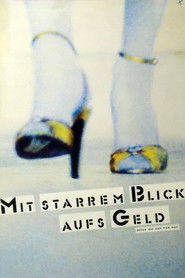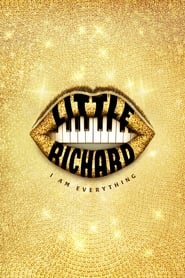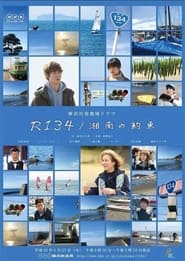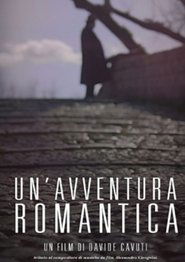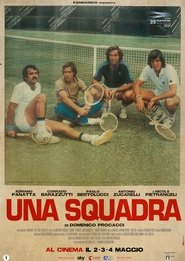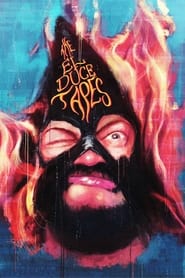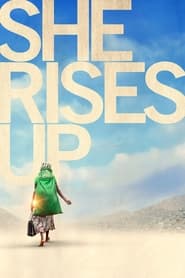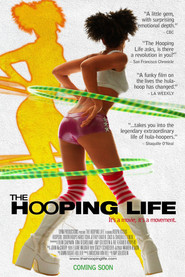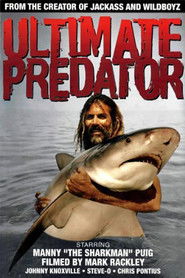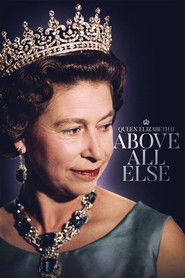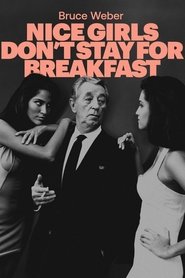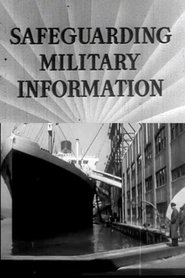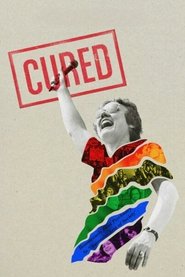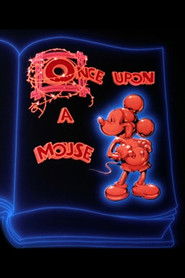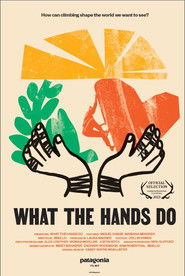Popular Documentary Movies - Page 190
-
Mit starrem Blick aufs Geld
1983
An intimate portrait of the director's sister: German model and former Playboy Playmate Hilde Kulbach. -
Little Richard: I Am Everything
2023
star 6.5The story of the black, gay origins of rock n' roll. It explodes the whitewashed canon of American pop music to reveal the innovator – the originator – Richard Penniman. Through a wealth of archive and performance that brings us into Richard's complicated inner world, the film unspools the icon's life story with all its switchbacks and contradictions. -
R134/湘南の約束
2018
-
Una squadra
2022
Una squadra
2022
star 7.6The story of the Italian national tennis team that won the Davis Cup in ’76 and reached the final three more times in the following years. -
The El Duce Tapes
2019
The El Duce Tapes
2019
star 7A wilfully offensive band, The Mentors gained infamy for performing in black executioner hoods and spewing cartoonishly racist, homophobic and misogynistic lyrics in the 1980s and ‘90s—but was their use of shock meant to propagate hate or confront it? -
She Rises Up
2024
She Rises Up
2024
star 10She Rises Up chronicles the remarkable journeys of three women who are helping to lift their communities out of poverty through the local businesses they fight the odds to maintain. Gladys in Peru, Magatte in Senegal, and Selyna in Sri Lanka reveal the explosive implications of women’s economic participation and the role entrepreneurs and small businesses play in women gaining financial independence, and ultimately reducing poverty for all. -
The Hooping Life
2014
The Hooping Life
2014
star 8.7Learn the origins and rise of modern day hula-hooping through eight extraordinary stories of hoop devotees who have embraced it as an art form, a teaching aid, and even an instrument of redemption. From the streets, to intimate clubs, to giant arenas, we alternate between self-filmed video diaries, verité documentary footage, and spectacularly filmed performances in an attempt to celebrate the healing power of movement and the spirit of human inventiveness. -
Ultimate Predator
2006
Ultimate Predator
2006
star 4.3A never-before-seen collection of insane animal encounters from the creators of "Jackass" and "Wildboyz." Manny "The Shark Man" Puig engages sharks, alligators, bears, snakes, and more. -
Queen Elizabeth II: Above All Else
2022
Queen Elizabeth II. Reigning monarch for over six decades, and the cornerstone of modern British history. Ascending to the throne after the untimely death of her beloved father, King George VI, she has seen the world change drastically, and faced a number of great challenges, both publicly and privately. Her inscrutable commitment to duty, above all else, has defined her lifetime of service to the throne. Take a look back at the incredible and incomparable life of Queen Elizabeth II. -
Letters from Karelia
2004
Letters from Karelia
2004
Story of Aate Pitkänen, a idealistic Canadian-Finn who went to Soviet Karelia. -
Fifty Years Later
2014
Fifty Years Later
2014
star 8After an initial meeting in 1964 interrupted by military dictatorship and a new meeting in the early 1980s to end the film "Twenty Years Later", Eduardo Coutinho once again find Elizabeth Teixeira, survivor of peasant struggles. -
My Old School
2022
My Old School
2022
star 6.8In 1993, 16-year-old Brandon Lee enrolled at Bearsden Academy, a secondary school in a well-to-do suburb of Glasgow, Scotland. What followed over the next two years would become the stuff of legend. -
Nice Girls Don't Stay for Breakfast
2019
star 4.6In the late 1990s, iconic photographer Bruce Weber barely managed to convince legendary actor Robert Mitchum (1917-97) to let himself be filmed simply hanging out with friends, telling anecdotes from his life and recording jazz standards. -
Safeguarding Military Information
1942
star 5World War II propaganda short which focuses on the dangers of inadvertent dispersal of military information. -
Cured
2020
Cured
2020
star 3.6Mentally ill. Deviant. Diseased. And in need of a cure. These were among the terms psychiatrists used to describe gay women and men in the 1950s, 1960s, and early 1970s. And as long as they were “sick”, progress toward equality was impossible. This documentary chronicles the battle waged by a small group of activists who declared war against a formidable institution – and won a crucial victory in the modern movement for LGBTQIA+ equality. -
Once Upon a Mouse
1981
Once Upon a Mouse
1981
star 6.7Once Upon a Mouse is a theatrical featurette highlighting Disney's animated legacy starting with Steamboat Willie in 1928. -
What the Hands Do
2024
What the Hands Do
2024
Mariana Mendoza and Miguel Casar are attracted to proud, challenging boulders and approach the sport with passion and dedication. At the same time, they believe that climbing hard is not the only thing that matters. As lifelong social justice advocates, they ask: How can we use climbing to cultivate joy and connection in our communities? Can climbing create opportunities for meaningful growth? How can we use climbing to shape the world we want to see? -
Who Sank the Titanic?
2019
star 5.3Reenactment of key moments that led to the sinking of the "unsinkable" Titanic.
 Netflix
Netflix
 Amazon Prime Video
Amazon Prime Video
 Apple iTunes
Apple iTunes
 Apple TV Plus
Apple TV Plus
 Disney Plus
Disney Plus
 Google Play Movies
Google Play Movies
 Paramount Plus
Paramount Plus
 Hulu
Hulu
 HBO Max
HBO Max
 YouTube
YouTube
 fuboTV
fuboTV
 Peacock
Peacock
 Peacock Premium
Peacock Premium
 Amazon Video
Amazon Video
 The Roku Channel
The Roku Channel
 AMC+
AMC+
 Kocowa
Kocowa
 Hoopla
Hoopla
 The CW
The CW
 Vudu
Vudu
 Starz
Starz
 Showtime
Showtime
 PBS
PBS
 Pantaflix
Pantaflix
 FXNow
FXNow
 Tubi TV
Tubi TV
 Kanopy
Kanopy
 Comedy Central
Comedy Central
 Crunchyroll
Crunchyroll
 Microsoft Store
Microsoft Store
 Redbox
Redbox
 Sun Nxt
Sun Nxt
 ABC
ABC
 DIRECTV
DIRECTV
 Crackle
Crackle
 Fandor
Fandor
 Plex
Plex
